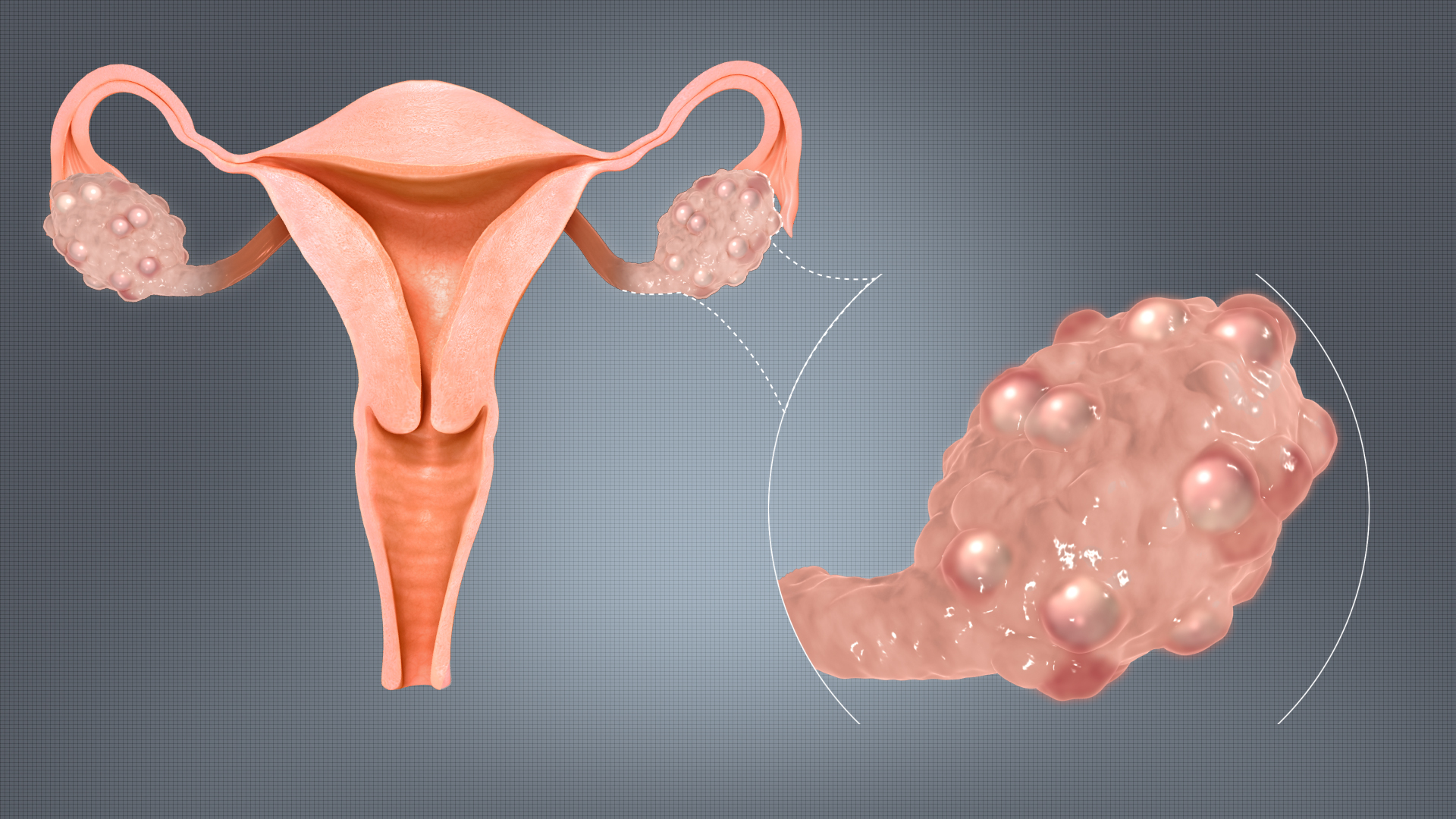Around 6-12% per 5 million women worldwide struggle with Polycystic Ovarian Syndrome (PCOS). Similarly, around 10% of women globally suffer from Polycystic Ovary Disease (PCOD). Although many women fail to understand the difference between the two, these medical conditions are drastically different. It is just that their symptoms are pretty similar.
Both these conditions affect the woman’s reproductive health, contributing to many complications, both physically and emotionally. The best way to treat these conditions is by understanding the causes. The quicker the diagnosis of these conditions , the easier it gets to tackle the shortcomings.
This article will discuss some of the most prevalent and must know differences between PCOD and PCOS that many patients don’t know.
In this Article
What is PCOD or Polycystic Ovary Disease?
PCOD is a disorder in women where the ovaries produce and release unregulated and partially mature eggs in multiples during the ovulation cycle each month. These eggs are then trapped inside the ovary, causing accumulation of multiple eggs over the months.
Although this might seem harmless, these partially matured and accumulated eggs in the ovaries later form cysts inside the ovary. The excessive presence of these cyst-like structures also contributes to heightened androgens production in the system.
That is not all. With the predominant release of androgens in the bloodstream, it directly suppresses the release of estrogen and progesterone. These are two of the most crucial hormones needed for female reproductive functions. The heightened androgen levels also inhibit the release of accessory hormones, including relaxin and inhibin.
Also Read: Metformin for PCOS and PCOD: Uses, Health Benefits, and Side Effects
What is PCOS or Polycystic Ovarian Syndrome?
PCOS is the more commonly diagnosed of the two. This is a form of medical disorder resulting from hormonal imbalance in the body. The definition can seem tricky and similar to that of PCOD. You need to realize that the hormonal imbalance in PCOS is not always due to the cyst formation in the ovary. It can be due to other accessory reasons.
PCOS affects women between the age of 12-51, which are the traditional reproductive years in women. The main impact of PCOS correlates with infertility, mainly because it leads to the prevalent onset of ovulation disorders. A new study says, it is the prime cause of infertility in women, at least in India.
Since the ovary produces more androgens than it should, the patient gradually develops follicular cysts in their ovaries, continuing the cycle further.
What are the Symptoms of PCOD and PCOS?
Both PCOD and PCOS showcase similar symptoms. While a few women experience the symptoms during an early stage, right during their teenage years, some don’t experience them until later in life.
The symptoms will worsen as the ovaries’ cysts increase at an alarming rate every month. So, if you miss your menstrual cycle one month, don’t treat it casually. Although many individuals think its normal, it could be an early sign of either of these conditions.
Getting the treatment on time can prevent the conditions from progressing and leave permanent scarring on the patient’s reproductive health.
Following are some of the PCOD and PCOS symptoms:
- Menstrual cycle abnormalities – Oligomenorrhea, Amenorrhea or Menorrhagia
- Excessive hair growth or Hirsutism
- Onset of acne on different parts of the body
- Unexplained or sudden weight gain
- Hair loss with brittle hair
- Hyperpigmentation around the folds and crevices in the body
If you are experiencing one or multiple of these symptoms, it is crucial that you seek medical attention. The more you delay, the more progressive the disease gets.
What are the Differences Between PCOD and PCOS?
Until and unless you have a comparative analysis between PCOD and PCOS, the conditions will likely seem a lot similar. And, if you are thinking the same, don’t worry because you aren’t the only person. Even doctors won’t know the correct diagnosis when the patient shares the primary symptoms.
To make the comparison for PCOD and PCOS differences easier to understand, let us take a look into each prospect individually.
| Elements of Comparison | PCOD | PCOS |
| Degree of Seriousness | PCOD is a very common disorder that can be fixed with lifestyle changes and proper diet. | PCOS is a metabolic disorder that needs medical attention besides introducing lifestyle changes. |
| Definition | This is a condition where the ovaries produce partially mature eggs that are later formed into cysts and release excess androgens in the bloodstream. | This is considered a severe form of PCOD that leads to ovulation disorders in women. |
| Fertility Issues | PCOD doesn’t result in infertility very often. This is because women still ovulate each month when they have PCOD. | Women with PCOS experience anovulation, which results in no ovulation like it normally should. Lack of release of a mature egg every month can lead to fertility issues. |
| Earlier Diagnosis | Since ovulation isn’t restricted in PCOD, the condition is often diagnosed later in life or even left undiagnosed in some women. | On the other hand, PCOS shows its symptoms early on in life. |
| Treatment Approach | It can be treated solely with lifestyle changes. Severe cases need medication or surgeries. | Needs medical intervention, sometimes even surgeries. |
Conclusion
So, to answer – Are PCOD and PCOS the same? The answer is No.
Both PCOD and PCOS come with similarities but are different in certain ways. Not only do you need to focus on your lifestyle, but you also need to consult a doctor to get the correct diagnosis first. The best way to control the damage is by catching the disease as early as possible. If you are experiencing any issues with your health, showcasing any signs of either PCOD or PCOS, you must seek medical help as early as possible.
FAQs



